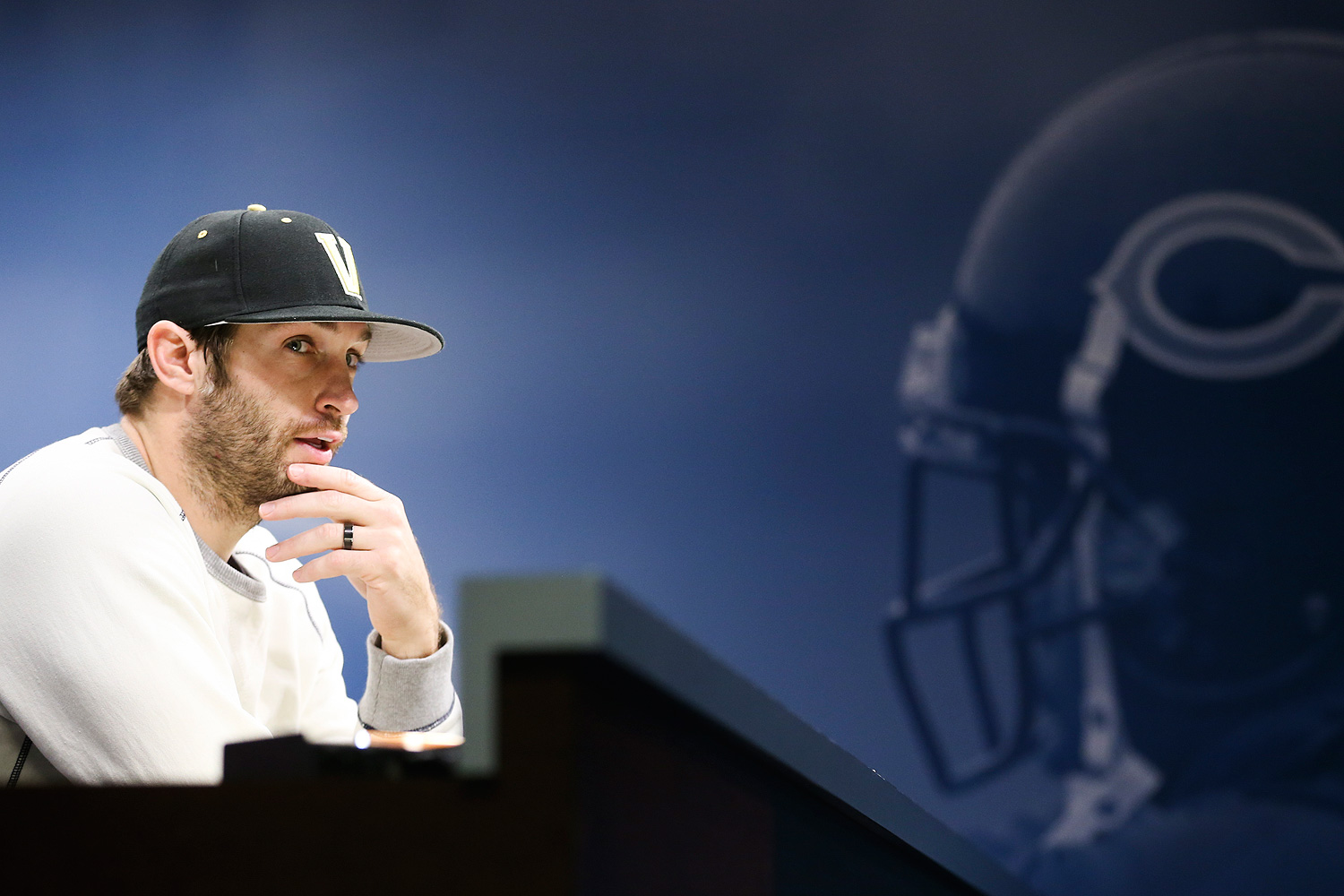Yesterday Bleacher Report published one of the most fascinating NFL stories I've ever read. It's a long piece by Ted Sundquist, the general manager of the Denver Broncos who drafted Jay Cutler in 2006, accurately titled "Why I Drafted Jay Cutler and What Happened From There." It's an in-depth, first-person account of who Cutler was when the Broncos drafted him, how he became the team's starting quarterback, and how he ended up in Chicago.
This in particular was fascinating:
But then there's something we only recently began using called the "Human Resource Tactics" test, which gauges various aspects of a player's character makeup. Cutler's "Mental Quickness" score is off the charts. Two other numbers are not. His "Self Confidence" score is average. It should be higher than that. His "Focus and Social Maturity" score is worrisome.
I think to myself, "This kid could be great. But we need to be careful with how we develop him."
And they weren't, beginning with a panicky organization dumping Jake Plummer—a quarterback popular with fans and teammates, who carried similar statistical failings with more élan on the field and more charm off it—for a still-green Cutler. "The veteran locker room wasn't happy with the move. Cutler became something of an outsider from within, not necessarily by his own doing," Sundquist writes.
People identify with athletes for many reasons, all of them strange. Sometimes it's because they seem like the self people want to be; sometimes because they are what most people aren't. I've held a soft spot for Cutler because of how his proasic flaws make him an unpopular figure. He's perceived as aloof and irritable, but also as tough and intelligent—the piece ends with a perceptive, almost poignantly honest self-assessment from a young Cutler. He can end a maddeningly inconsistent game by willing his team down the field, or blow a marvelous day with one bad decision. The rhythms of his unpredictability are familiar to anyone with a "self-confidence score" of "average."
He's achieved more than he should have. "Considering several teams look at him as a first-round target, that tells you more than enough about the lack of quality talent at this position for the 2006 draft," his CBS Sports college scouting report reads. Yet, as Sundquist's lament makes clear, he hasn't achieved as much as he could have if his career had been handled differently (and he had a bit more self confidence).
If your primary interest in sports is the success of your team, Cutler has primarily been a source of intense frustration. But if it's something else, a serial drama played out over your lifetime, Cutler has been one of its most compelling figures—all the more so because his failings are so discomfitingly like those of mere mortals. Maybe that's what bothers people about Cutler most of all.



